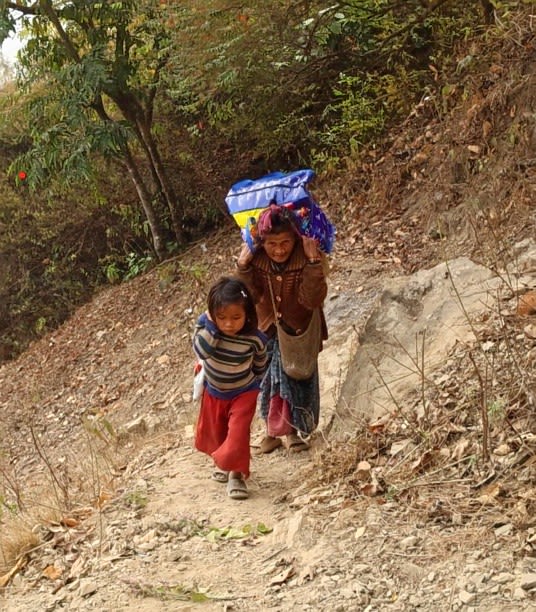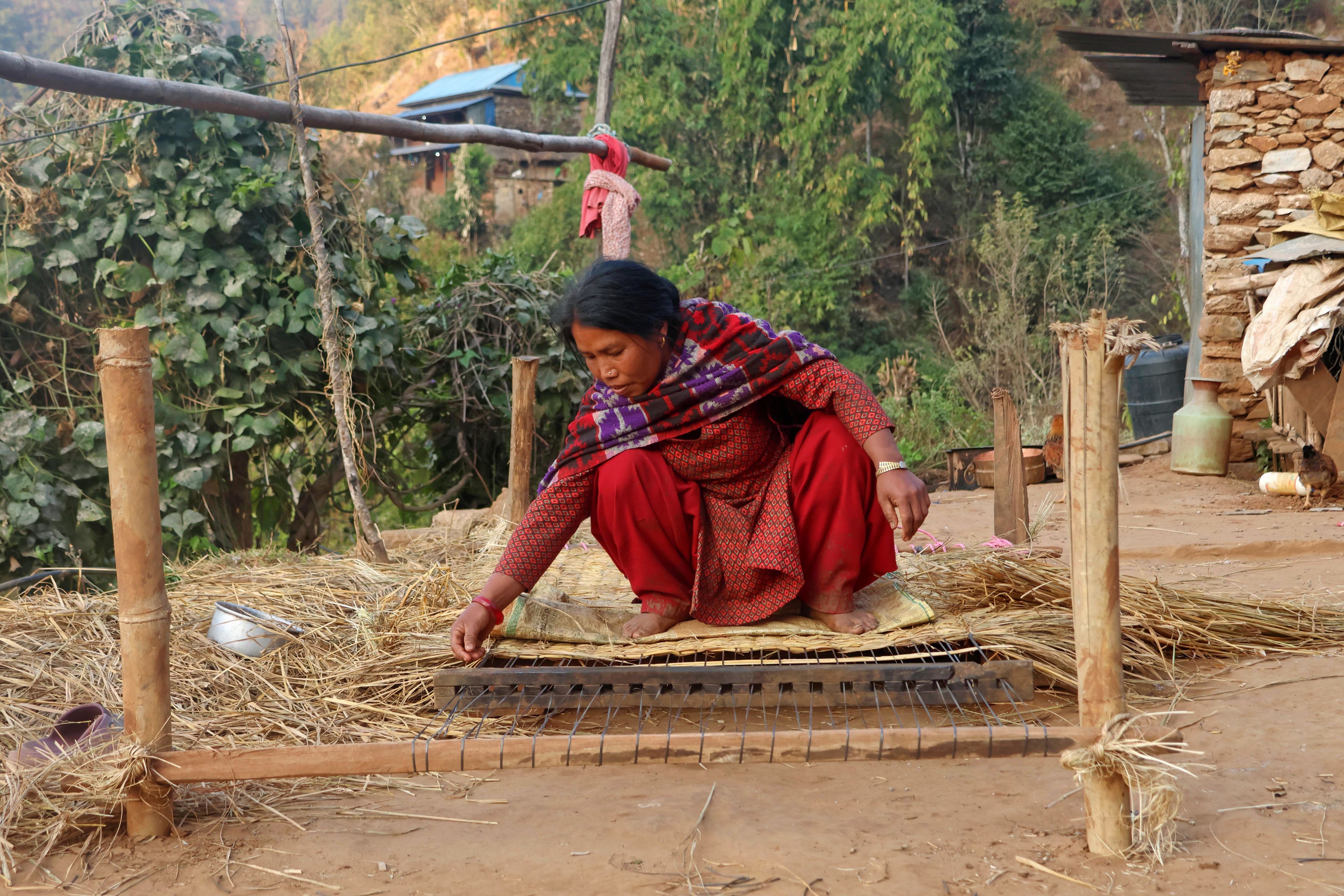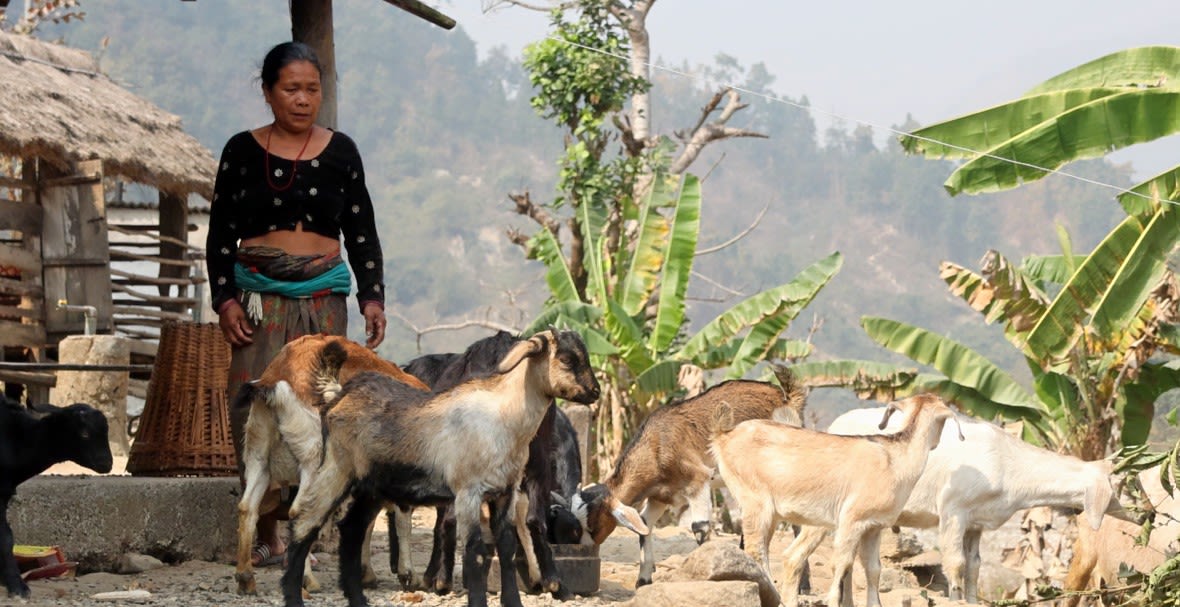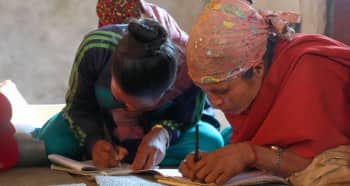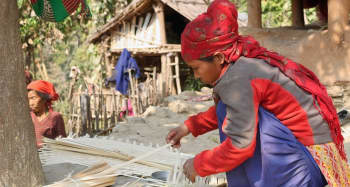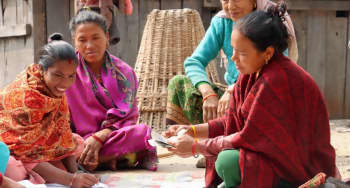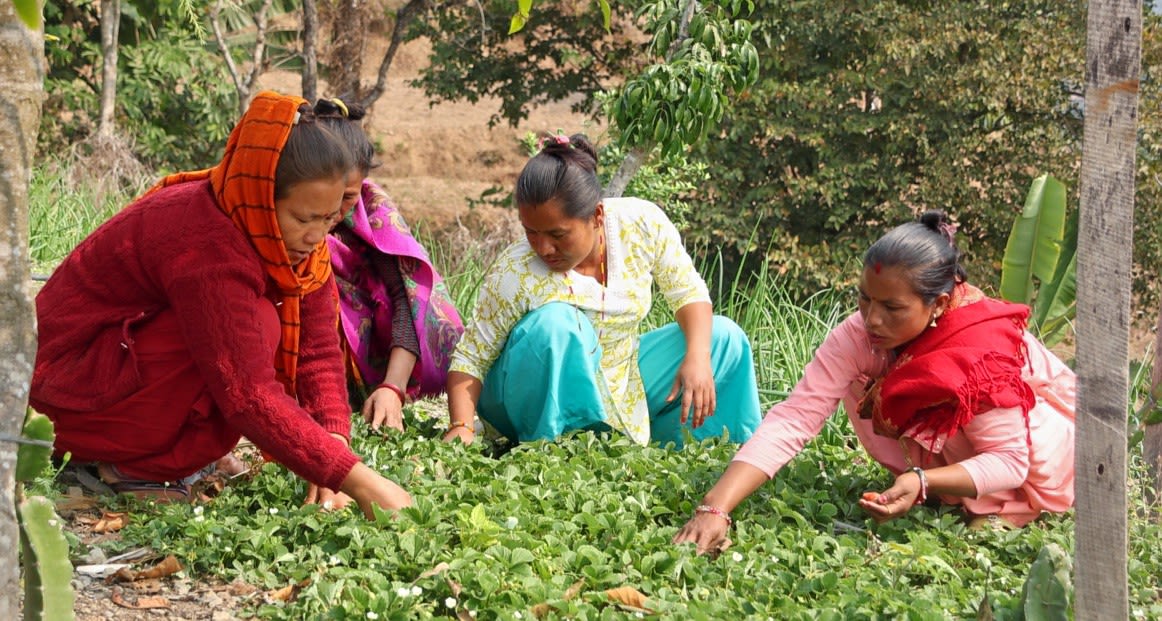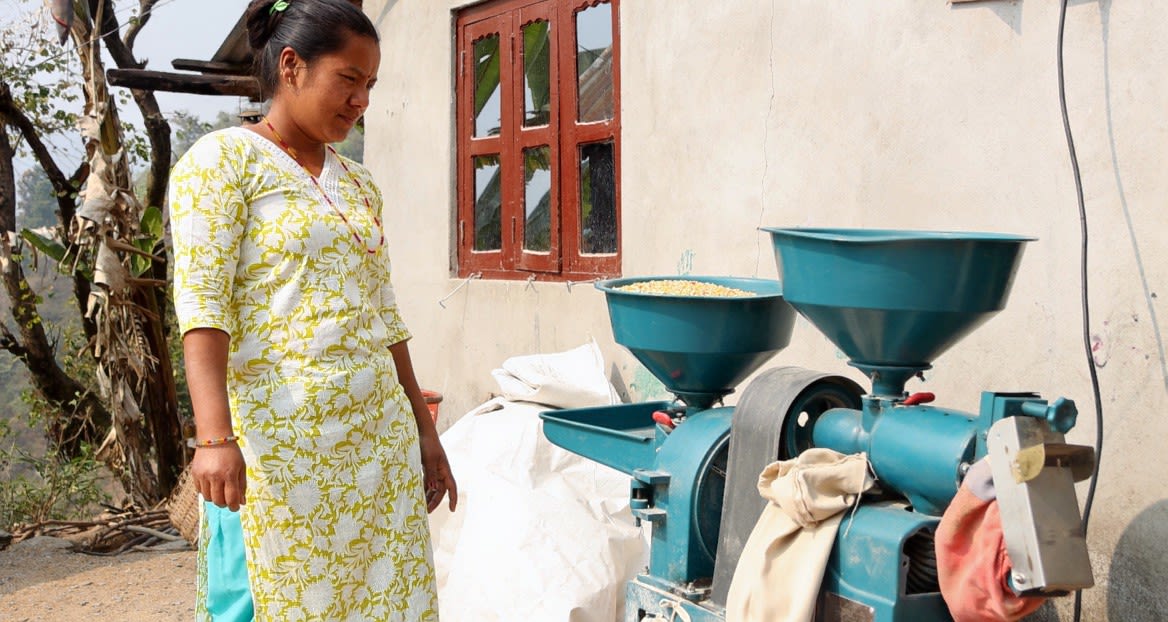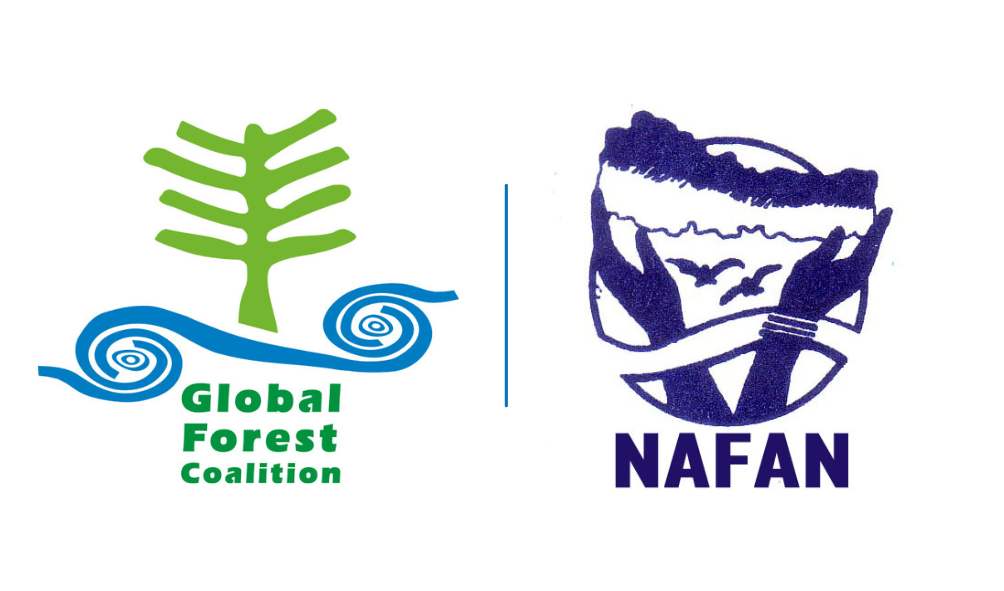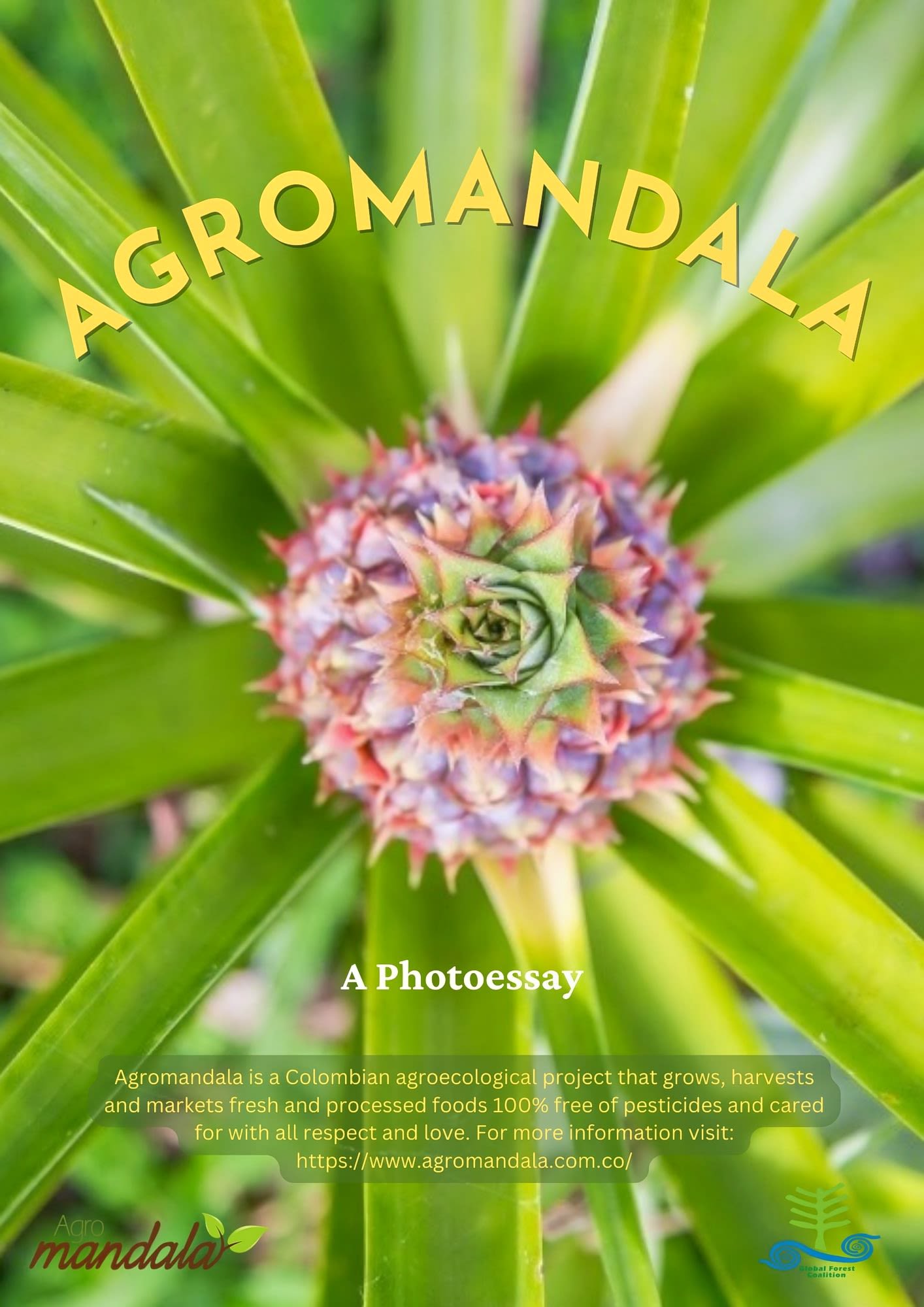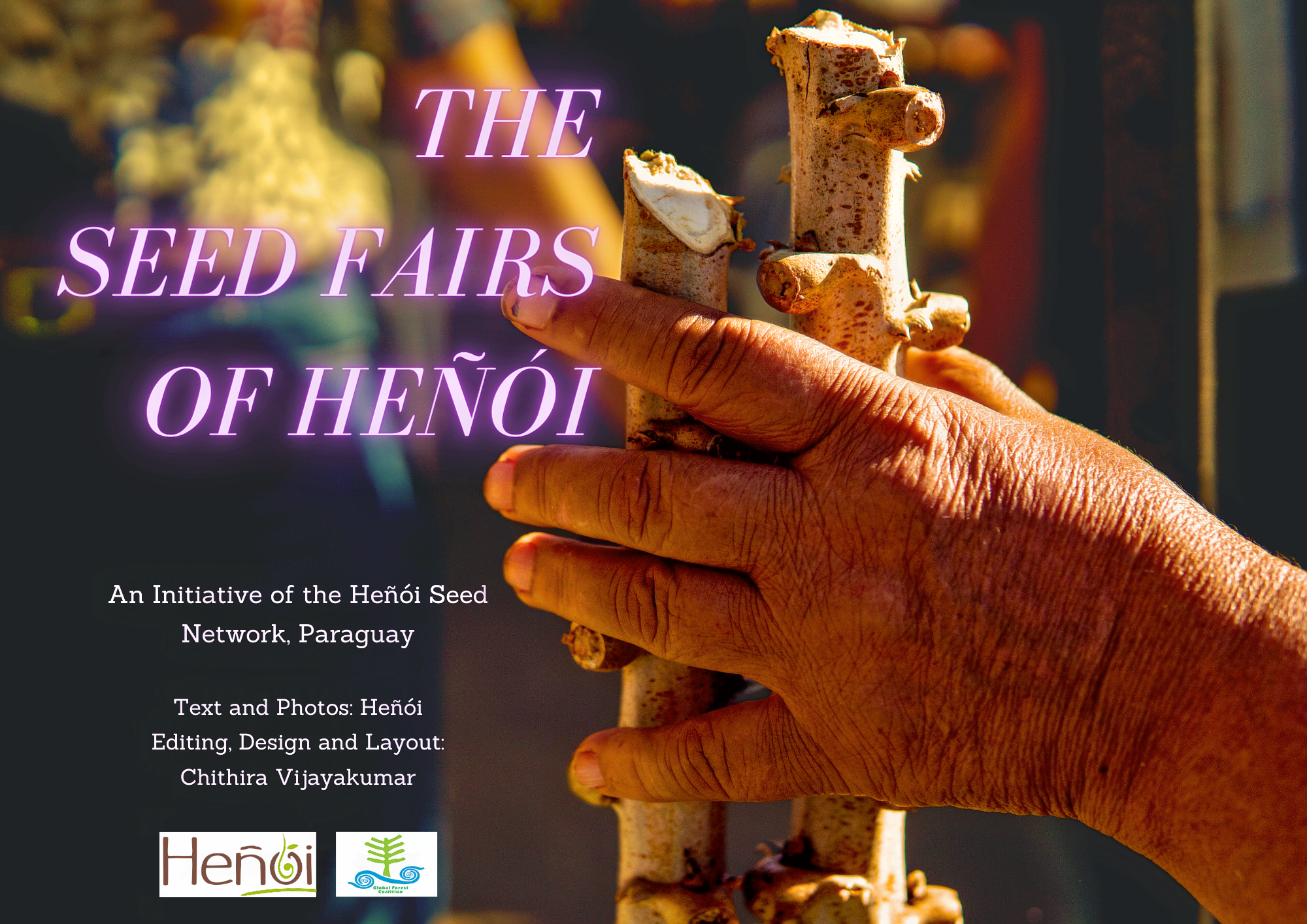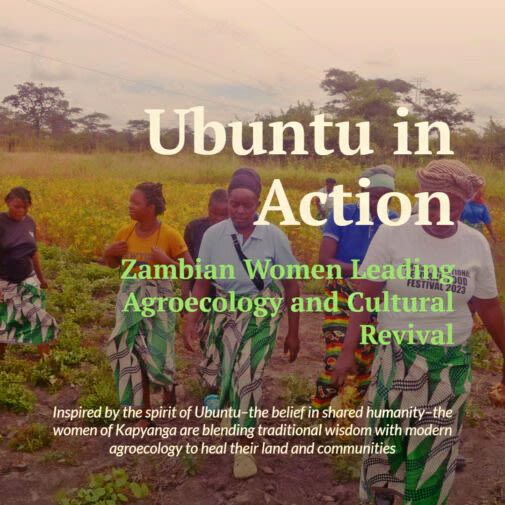Harvesting Hope in the Hills of Nepal
The Journey of Chepang Women toward Food and Gender Justice
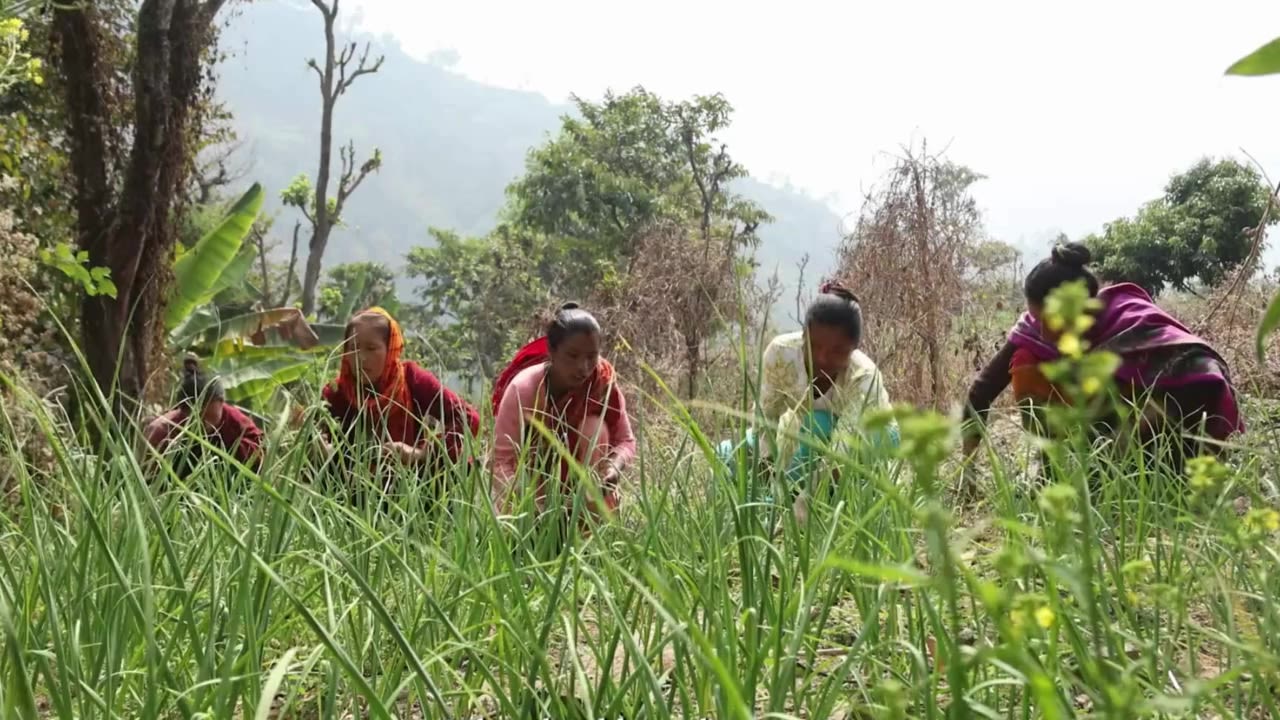
IIn the rugged hills of Makawanpur, Nepal, the Chepang people have long maintained a semi-nomadic existence deeply tied to forest ecosystems. Though slash-and-burn agriculture (Khoriya) was once a key survival strategy, land policies and ecological limits have forced a shift toward settled farming, forest dependence, and ancestral subsistence practices.
Chepang women stand at the centre of this ecological bond. They cultivate millet, maize, and bananas, gather chiuri butter (an edible fat extracted from the seeds of the chiuri tree), and forage wild greens and tubers such as yams, taro, and cassava, so-called “forgotten foods” that nutritionally enrich household diets and conserve biodiversity.
Chepang communities live close to the earth and close to the poverty line. In fact, the overwhelming majority live below the poverty line, with per capita income barely reaching NPR 6,000 (EUR 36) per year.
According to the latest figures from 2012, educational deprivation is stark, with over 75% of Chepang illiterate, and female literacy sitting at just around 1%. Girls often drop out of school to fulfil care and domestic work or face early marriage, cutting short access to education and deepening gender oppression. Latest national census figures from 2022 do not break down literacy data for the Chepang.
Geographical inequalities amplify these challenges, which have disproportionate impacts on women and girls. Many villages lack access to basic services, healthcare is remote, teen pregnancies are common, and over 90% of settlements in the Chure and Mahabharat range are at risk of landslides and erosion. This all contributes to a precarious situation that women are helping to solve.
A grandmother and her granddaughter walk home from a distant market in central Nepal, shouldering heavy loads after navigating steep terrain to trade grains, goats, and household goods. (Bhola Bhattarai/NAFAN — Kunale village, Nepal; April 22, 2025)
A grandmother and her granddaughter walk home from a distant market in central Nepal, shouldering heavy loads after navigating steep terrain to trade grains, goats, and household goods. (Bhola Bhattarai/NAFAN — Kunale village, Nepal; April 22, 2025)
‘Our Strength and Survival’
Agroecology and Traditional Livelihoods
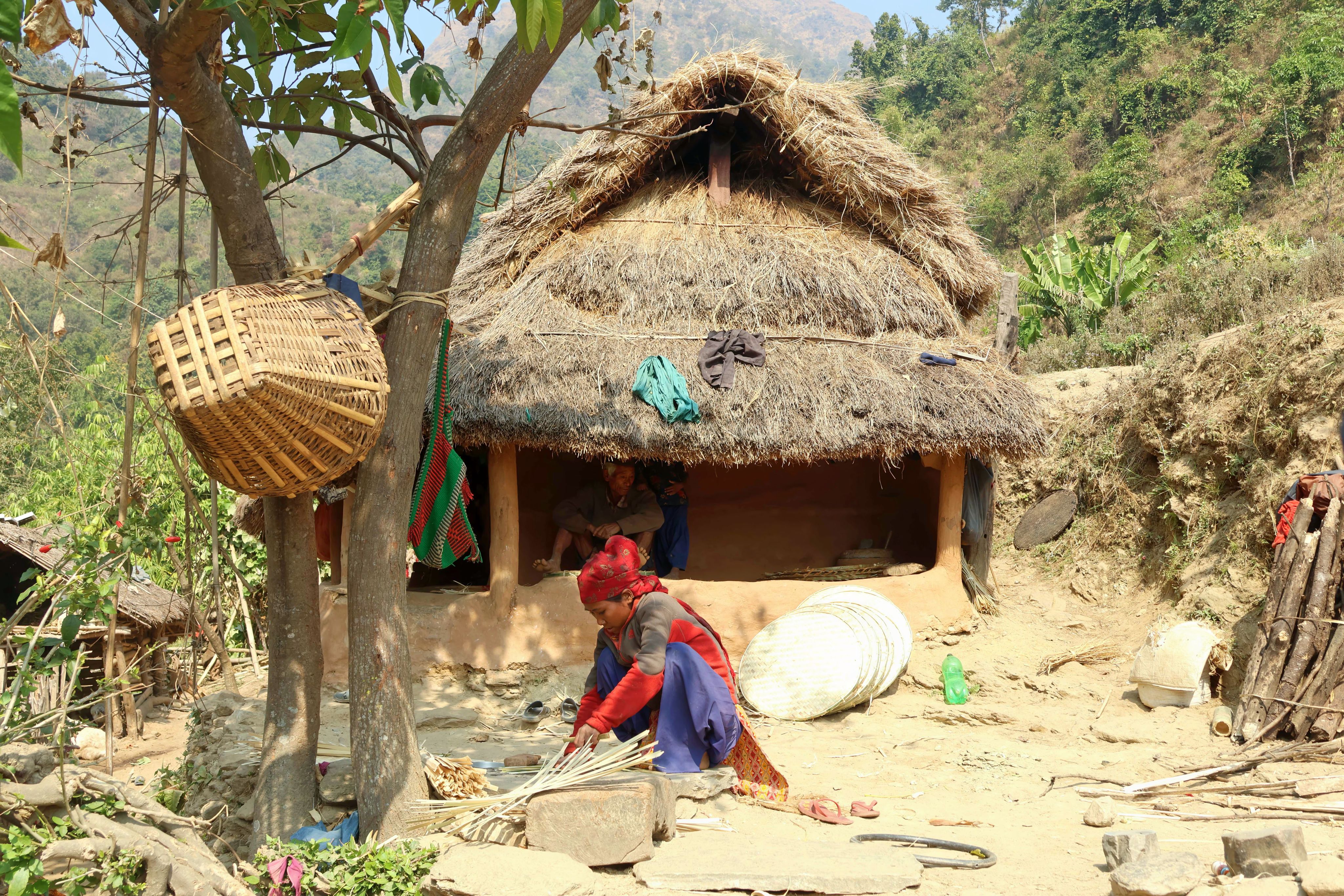
Chepang women face deep systemic inequalities and also hold extensive ecological knowledge. They weave bamboo baskets and Bhakari containers for storing grains, craft straw mats called Gundri used in rituals and daily life, and process highly nutritious Gundruk—a traditional food of fermented and sun-dried greens. Each of these practices is rooted in local knowledge and sustainable resource use.
A local woman weaves a traditional Gundri mat using rice straw in Khairang village, in central Nepal. (Bhola Bhattarai/NAFAN — Khairang village, Makawanpur district, Nepal; Apr. 12, 2025)
A local woman weaves a traditional Gundri mat using rice straw in Khairang village, in central Nepal. (Bhola Bhattarai/NAFAN — Khairang village, Makawanpur district, Nepal; Apr. 12, 2025)
These traditional activities support agroecological resilience: they help preserve biodiversity, reduce waste, promote food sovereignty, and allow women to use their ecological heritage for their livelihoods.
"When we weave, we are not just making mats—we are weaving our stories, our strength, and our future."
Chepang women also rear goats to supplement family diets and provide income. They manage feeding, care, and manure use, integrating livestock into local agroecological cycles. In Raksirang, early mornings often begin with women tending to goats, feeding and nurturing them according to practices passed down through generations. These animals supply both nutrition and additional income, offering stability during seasonal food scarcity.
Their value goes beyond that, too; as one woman explained, “Feeding our goats is not just a chore. It’s our strength and survival. These animals are part of our family.” These acts of care are also an ecological practice that is embedded in daily routines and in the socio-ecological fabric of the community.
A Chepang woman tends to her goats, an essential part of life for many Indigenous families in Raksirang. (Suraj Dhakal/NAFAN — Raksirang village, Nepal; April 12, 2025)
A Chepang woman tends to her goats, an essential part of life for many Indigenous families in Raksirang. (Suraj Dhakal/NAFAN — Raksirang village, Nepal; April 12, 2025)
These practices form living agroecological systems driven by women. Each activity builds ecological diversity, optimises local resources, and strengthens community food systems. By transforming ancestral knowledge into sustainable income and resilience, Chepang women are powerful agents of ecological stewardship and human rights.
Bridging Culture and Economic Opportunity
NAFAN–RYTHM Projects
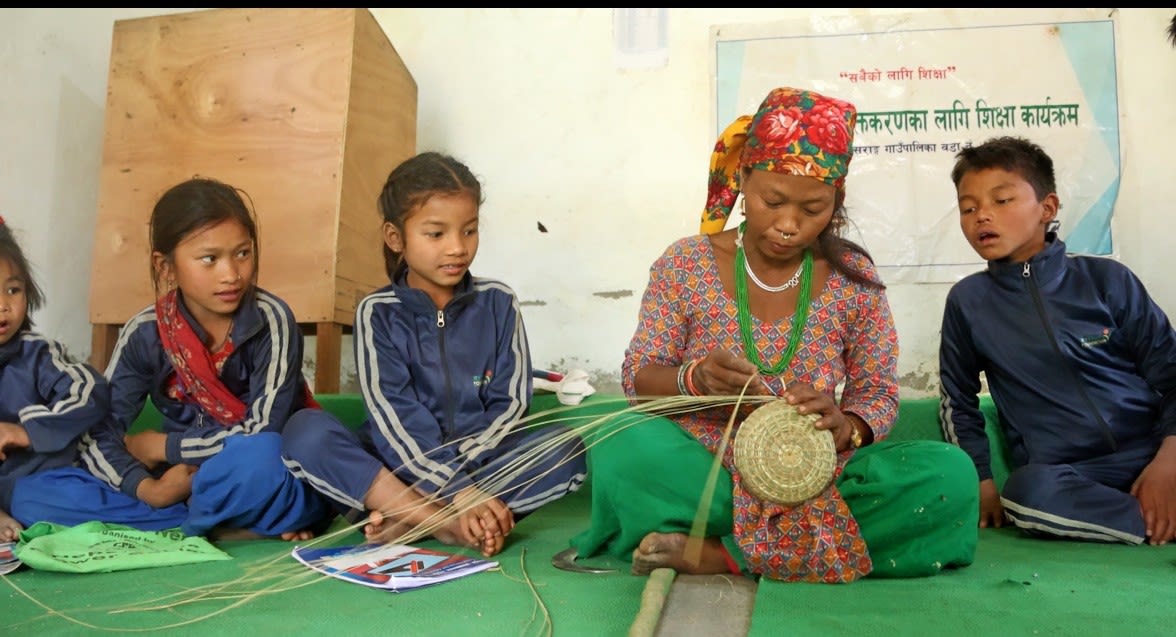
NAFAN, together with the RYTHM Foundation, has catalysed change in Chepang communities through locally rooted, rights-based programmes. According to data collected by NAFAN, their informal education initiatives have raised school enrollment from 60% to 95%, improved adult literacy, and kept girls in school, reducing early marriage risk for over 70% of Chepang women and girls. This has supported women’s dignity and involvement in local decision‑making.
Beyond formal schooling, NAFAN emphasises Indigenous knowledge preservation, integrating skills like weaving and food crafting into education, where women lead both as learners and teachers.
“When I teach the children how to weave, I feel like I’m planting seeds of our culture in their hearts. This is how we stay strong.”
With support from the Swallows of Finland, NAFAN has also been working alongside Chepang communities to revitalise traditional food systems, promote traditional livelihoods, and enhance local food resilience. By uplifting indigenous knowledge and supporting community-based production, NAFAN is helping build a bridge between cultural heritage and economic opportunity.
Chepang women are custodians of forest resources. They collect wild foods, extract chiuri butter, and manage community forestry systems. These practices strengthen ecological stewardship and their social identity, enabling the women to organise sustainable forest-based value chains that provide livelihood options while protecting nature.
“I used to feel invisible. Now I can write my name, read signs, and speak in meetings. Education gave me a voice—and I’m using it.”
To overcome remoteness and low market access, charities support local markets and women-led cooperatives. In Raksirang, women now trade crafts, grains, livestock, and produce like bananas closer to home, reducing travel burden and increasing returns.
Savings and credit groups have been set up by women from the Chepang and Tamang communities. The Tamang are an Indigenous people of Nepal who share similar socio-economic and cultural traditions with the Chepang. The savings and credit groups finance farming, value-added processing, and social initiatives. These systems boast high loan recovery rates (over 95%, according to NAFAN records) and contribute to collective resilience and economic self-determination.
“We used to wait for others to decide our future. Now, we save, we lend, we grow—and we lead.”
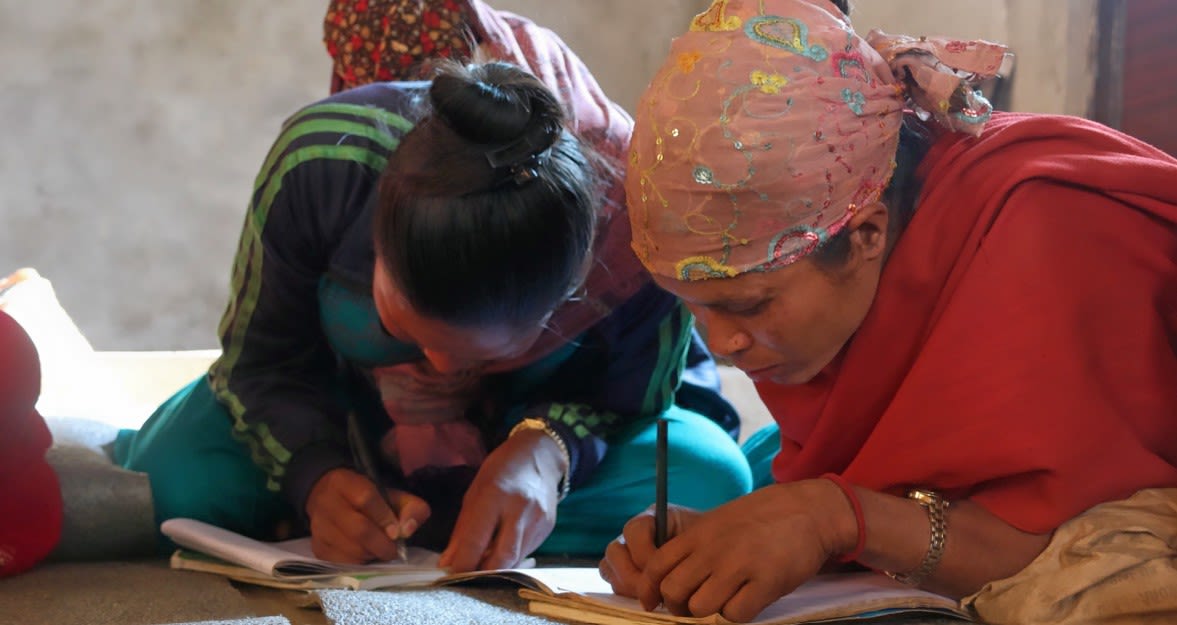
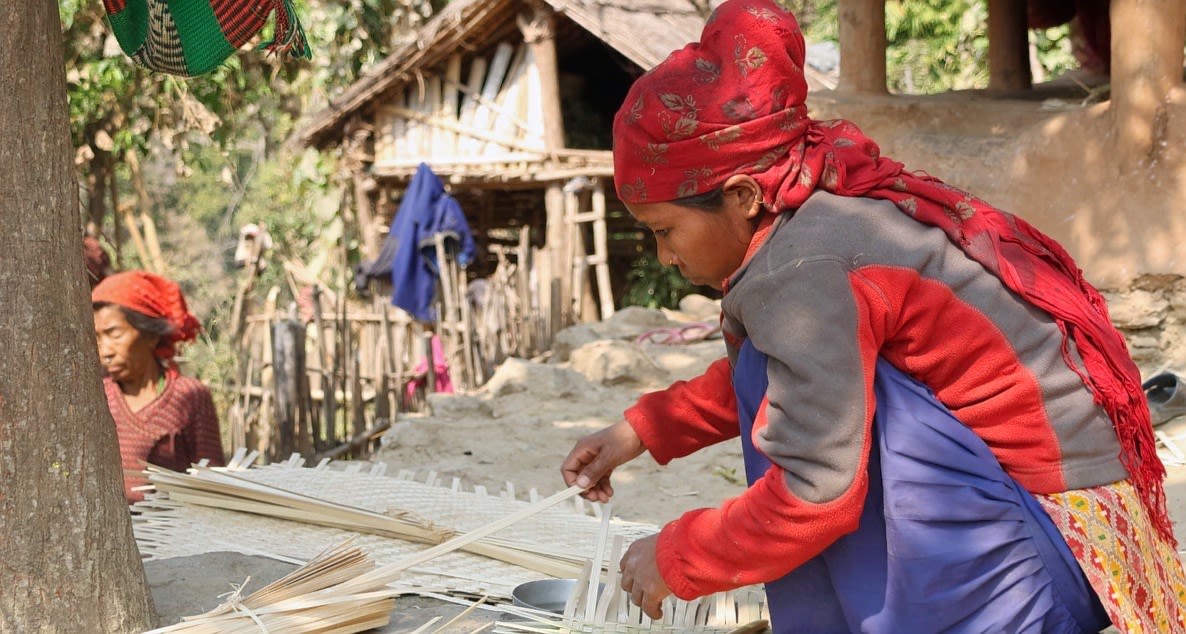
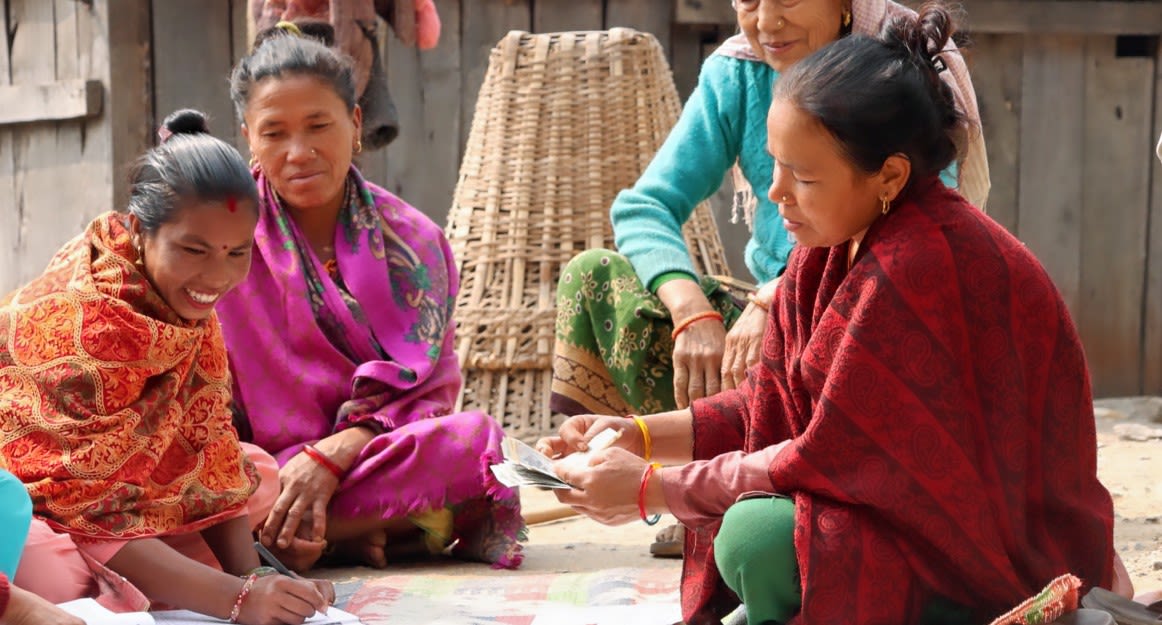
Banana Cultivation
‘Now We Stand on Our Own Feet’
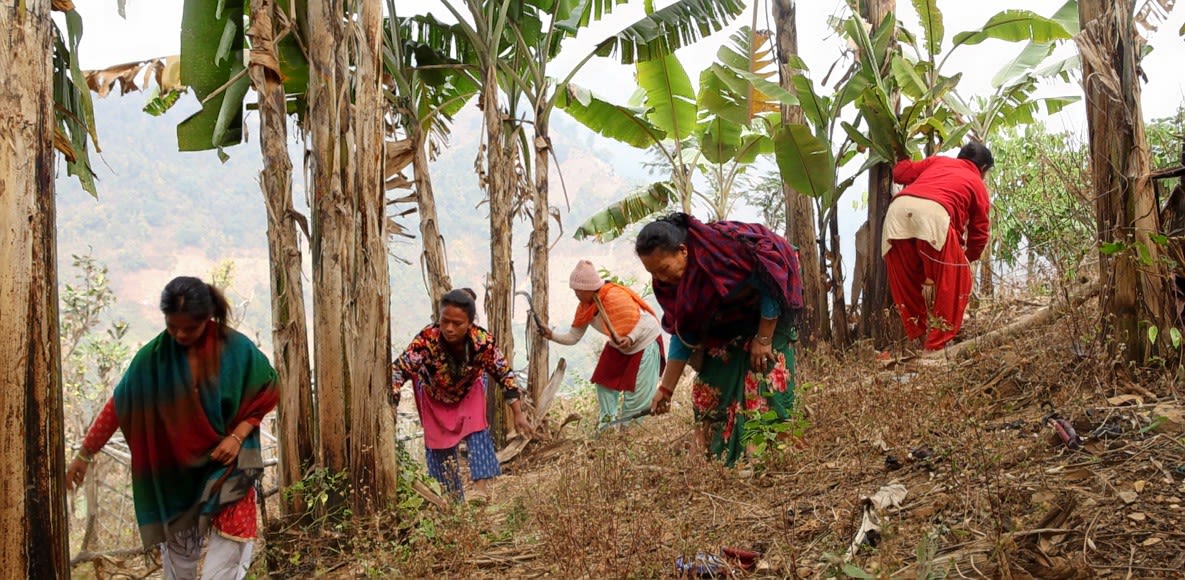
In Raksirang’s Ward 7, the Khusiyali Farmer Group, a collective of 25 Chepang households, has transformed banana cultivation into a community livelihood anchored in women’s leadership. With support from local organisations, women in Khusiyali organise collective banana farming and produce banana chips to sell. This ensures a reliable income and strengthens agricultural knowledge, reinforcing bonds of cooperation and financial independence. “Before, we depended on others. Now, with our bananas, we stand on our own feet,” one woman said.
Commercial banana cultivation is increasingly recognised as a viable strategy for smallholder farmers across Nepal. In other districts, producers have converted fallow land into banana groves, generating significant income. For Chepang communities, banana production is a way to earn income and reclaim agroecological space in traditional food systems.
Women Leading Change
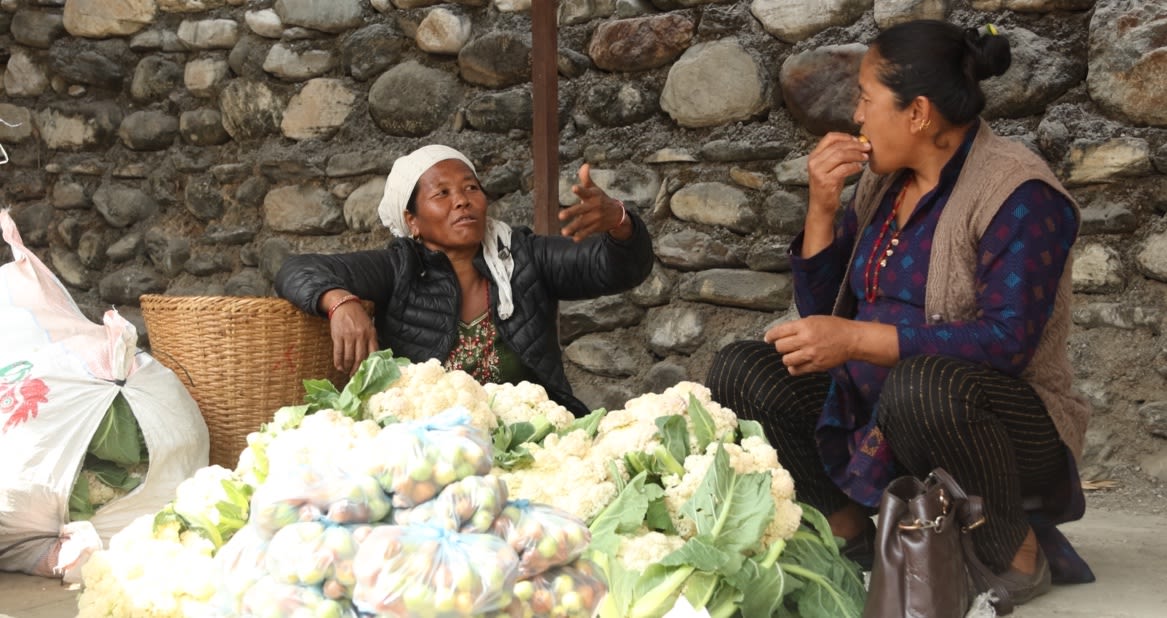
In Chainpur and surrounding villages, NAFAN’s support has enabled the establishment of a community-owned market, designed in collaboration with Raksirang Rural Municipality and local community organisations, as a space for selling agricultural and forest-based goods. The market supports community sovereignty and cultural recognition. Chepang women now engage directly in trade, selling bananas, crafts, gundruk, and goats’ produce without intermediaries.
The impact reaches deeper: households that once travelled long distances now sell within their own community. The solidarity economy shifts power, retains value locally, fosters income streams, and builds agency among marginalised Indigenous families.
"We no longer wait for help—we grow, harvest, and sell together. This market is our voice and our victory."
Projects supported by local civil society have trained Chepang women as resource persons in social accountability tools, enabling them to engage in local governance, advocate for gender-responsive policies, and use community radio and forums to raise visibility.
Women’s leadership in village planning, forest management, sanitation awareness, and agroecological budgeting has become a powerful force driving climate justice and community empowerment.
The Didi Bahini Agriculture Farmer Group has also grown into a powerful women-led collective driving sustainable farming and community resilience. Initially reliant on subsistence plots, the women received training, exposure visits, and technical assistance that enabled them to transition to collective commercial agriculture, cropping vegetables and grains, sharing resources, and practising natural farming methods
Women from the Didi Bahini Agriculture Farmer Group harvest strawberries to sell. (Suraj Dhakal/NAFAN — Bharta village, Nepal; April 10, 2025)
Women from the Didi Bahini Agriculture Farmer Group harvest strawberries to sell. (Suraj Dhakal/NAFAN — Bharta village, Nepal; April 10, 2025)
Over time, they have emerged as leaders in local governance, becoming involved in planning and budgeting, hygiene campaigns, and advocating for women’s land rights and decision-making power. From farming in isolation to cultivating confidence, production, and solidarity, the Didi Bahini group now plays a central role in promoting agroecological livelihoods, food security, food sovereignty, and gender justice in Raksirang, standing as a model of how women can lead change from the ground up.
Advocacy led by women farmers has also introduced technologies that ease the workload and improve productivity. Such tools free up time for leadership roles, education, and civic participation. Meanwhile, community-based renewable energy initiatives led by women and youth have expanded access to electricity in previously unconnected Chepang villages, reducing reliance on biomass fuel and opening new economic possibilities.
A Chepang woman stands next to a grinding mill. (Suraj Dhakal/NAFAN — Dhusarang village, Nepal; April 11, 2025)
A Chepang woman stands next to a grinding mill. (Suraj Dhakal/NAFAN — Dhusarang village, Nepal; April 11, 2025)
Conclusion
Change from the Ground Up
Chepang women’s stories demonstrate resilience, knowledge, and rights-based agroecological transformation. Through weaving, food preservation, education, cooperatives, and advocacy, they nurture sovereignty over food, land, and culture. With support from NAFAN and partners, their collective efforts are reclaiming identity, reshaping futures, and building solidarity economies rooted in justice.
Their journey shows that change emerges from communities themselves, when women are empowered, Indigenous wisdom is honoured, and social justice is woven into every action.
“We used to farm alone, unsure of our future. Now, we plan together, grow together, and speak up for our rights. This is our movement.”
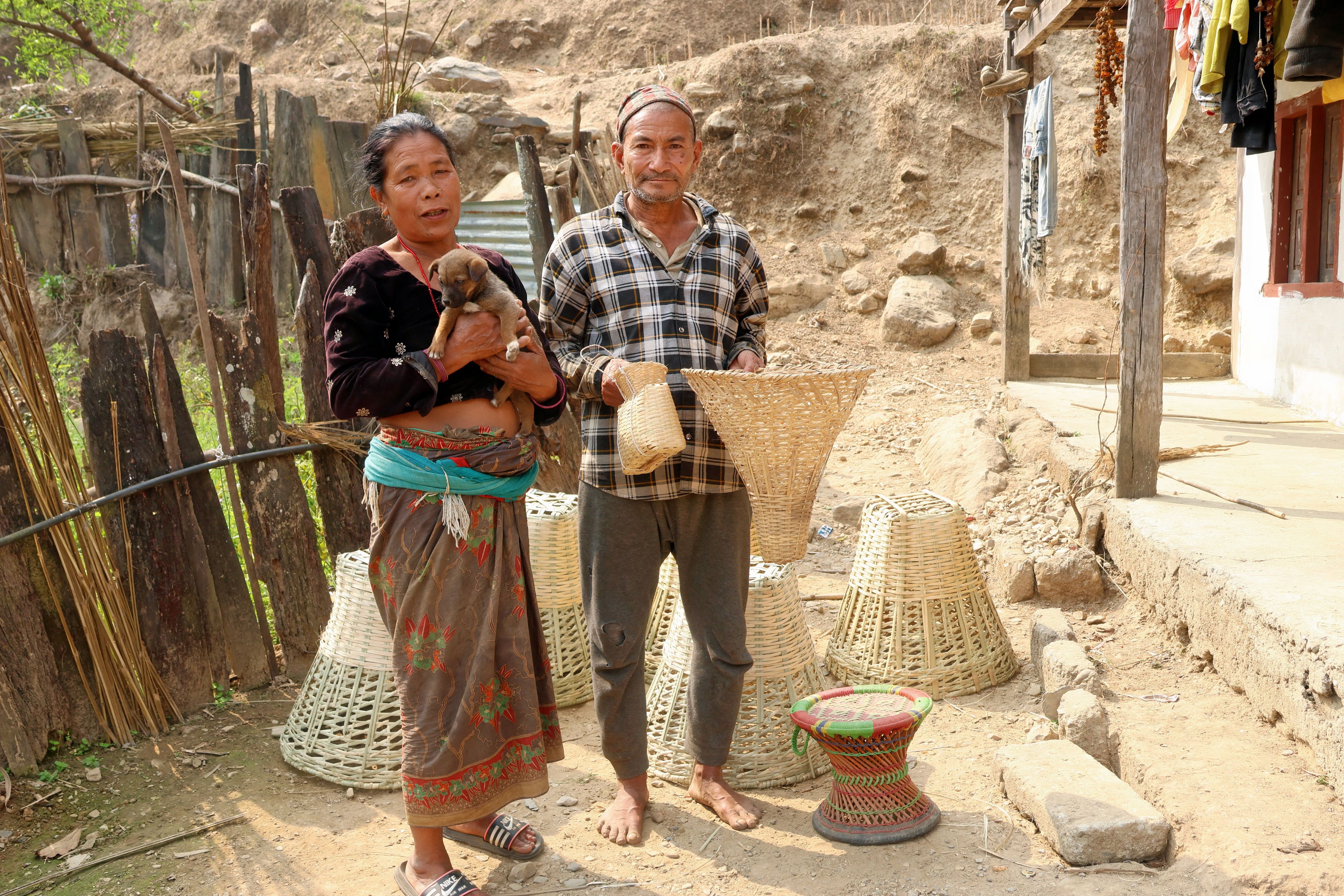
This photo essay was produced by the National Forum for Advocacy Nepal (NAFAN) and the Global Forest Coalition, with thanks to Raksirang Rural Municipality for providing a conducive working environment; Chepang Association and its members for their collaboration with NAFAN; Community-based organizations (farmer groups, forest user groups) for their effective cooperation and support; The Swallows of Finland and Rythm Foundation, Malaysia for their generous financial support to NAFAN; and NAFAN staff for dedicating their time and efforts alongside local people in bio-cultural protection, informal education, and community development.
Words: Bhola Bhattarai & Ismail Wolff
Images: NAFAN
Design: Ismail Wolff
Editing: Megan Morrissey
National Forum for Advocacy Nepal (NAFAN)
Chakupat, Lalitpur, Nepal
email: nafannepal8@gmail.com
WhatsApp:+9779851074770
www.nafan.org.np
The Global Forest Coalition (GFC)
www.globalforestcoalition.org
Similar Stories
Agromandala
Agromandala is a Colombian agroecological project that grows, harvests, and markets fresh and processed foods 100% free of pesticides and cared for with all respect and love. At the core of Agromandala’s ethos lies the Community Supported Agriculture (CSA) model, a groundbreaking initiative born in August 2020 as a response to the COVID-19 pandemic. This innovative approach ensures a direct link between local organic farms and families invested in the well-being of their food sources. With over 150 varieties of edible plants, the project currently feeds around 80 families a week, of which 40 are members of the CSA.
The Seed Fairs of Heñói
In the heart of Asunción, Paraguay, two extraordinary fairs took place in 2023 against the backdrop of a fight for food sovereignty: the ‘Heñói Jey Native and Creole Seed Fair’ and the ‘Karú Soberano Fair’, which means ‘Sovereign Eating’ in the Guaraní language. They were organised under the guidance and leadership of the Heñói Seed Network. At these fairs, seeds emerge not just as agricultural treasures but as custodians of a profound legacy.
Ubuntu in Action
Real solutions to forest degradation, climate change, and biodiversity loss come from the ground up—here’s a powerful example from Zambia, where a group of women has been working with joy and determination to restore forests and food security, bringing agroecological methods to future generations to ensure a healthy environment and community. Check out their inspiring work and the power of women’s leadership in this photo essay

